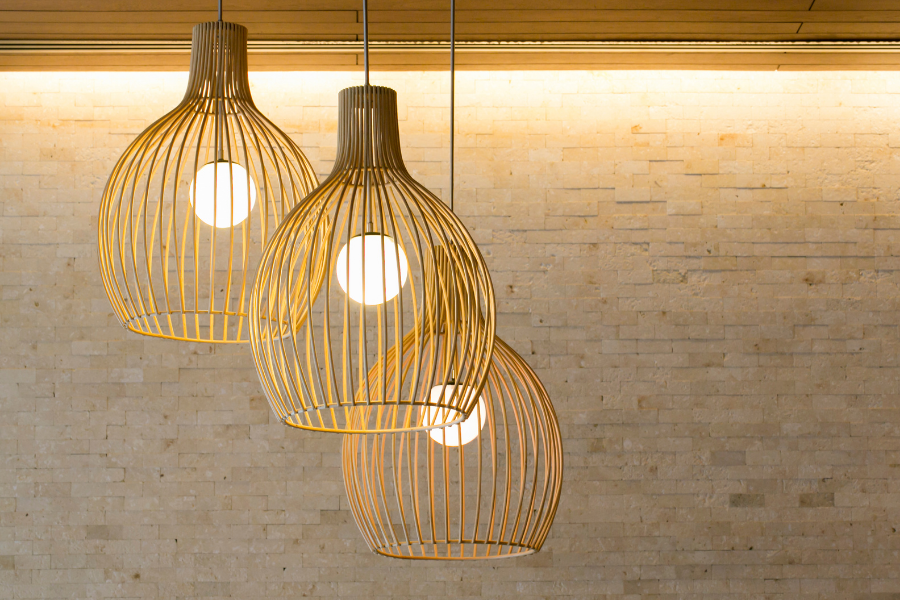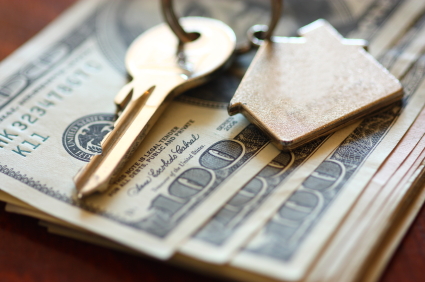It's Not Just Rent: Factor These Expenses Into Your Monthly Budget
You probably know this by now, but your monthly rent payment doesn’t cover your entire cost of living. Rent pays for a roof over your head, but there’s a lot more that needs consideration.
If you’re sitting down to create a detailed budget, you need to consider everywhere your money goes, including utilities, transportation, investments, and more. The key to a successful budget is accounting for every dollar you spend. You must include all of your financial responsibilities, so let’s take a deeper look at those expenses now.
Utilities
As a military member, you'll want to factor utilities into your budget. The cost of utilities fluctuates from location to location.

Photo from Canva
For instance, Arkansas tends to have a lower cost of living. An electric bill there will average $135 a month, compared to Hawaii’s $229 . Compare other utilities like gas, and you’ll notice that there’s a vast difference. The average gas bill in Arkansas is $80, while in Hawaii it’s $98. So, when you’re acclimating to a new duty station, it’s key to look beyond the rental price on a home and understand the true cost of living. And while the military provides COLA (Cost of Living Allowance) in some locations, it doesn't always cover all extra expenses, especially with inflation on a rapid incline.
In addition to your research of the area, ask the landlord or property manager the average cost of utilities from previous tenants. While their answer may not correspond directly to your usage, you can generally obtain an accurate idea for your budget and make necessary adjustments once you’ve settled in for a couple of months.
Here are a few utilities you can expect to add to your budget:
- Electric
- Gas
- Water
- Internet service
- Renters insurance
Security Deposits
Deposits are sneaky, aren’t they? Here’s why. We all expect to pay a security deposit when we sign a rental lease. But after a move, especially after a Personally Procured Move (PPM), our expenses are a little exhausted. Between the cost of moving (travel, eating out, and lodging), our accounts feel depleted after a PCS move, and then we’re met with a lump sum expected to secure our next home.
 Photo from Canva
Photo from Canva
Types of Deposits a Renter May Experience:
1) Security Deposit
It’s refundable, so we don’t always think much of it. But a security deposit can be a lot of money upfront and should be factored into your budget and when you're calculating how much rent you can afford. But it’s fairly simple to determine, as many landlords often require the first month’s rent as the deposit.
Some states have no limit as to how much a landlord can charge while others put a legal cap on the amount. It could be one month, two months', or three months' rent, so it's a must-know. If you don’t think that the amount your landlord requires for a security deposit is fair, you can check with your state's laws to ensure that it’s lawful.
Learn more: Understanding Security Deposits in Different States
2) Pet Deposit
If you have furry little friends, there’s a good chance that the landlord will require a pet deposit. Some require a deposit per pet, which can either be refundable or no-refundable. While you should expect to pay some amount as a deposit, there’s often wiggle room on the topic, and it may be worth negotiating these variables with the landlord. Instead of doubling your deposit for two dogs, ask that you pay for one. Or maybe agree to double the amount for their peace of mind, but request that they make it refundable at the end of your lease.
Related:
The Cost of Supplying a New Home
Replacing all the cleaning products, kitchen staples, and household necessities for your new home adds up. It’s not just another grocery trip; it’s double and sometimes triple your average visit to the commissary or Costco.

Photo from Canva
For your first month at your new home, add a separate category to your budget for resupplying or inflate your grocery category to accommodate the added expense.
Take into account:
- Cleaning products
- Laundry soap
- Bathroom supplies
- Spices
- Condiments and kitchen staples
Commute
Consider the cost of gas and public transportation at your duty station. In locations like California, you might find that fuel costs are a large part of your budget, depending on how far you live from the base and how far you need to drive. In cases like this, it might make more sense to live in a more expensive home closer to work than in a less expensive home further away.
Groceries
Groceries may be the largest component of your budget—second to rent. According to U.S. News Money, a moderate budget for a family of four is $302 a week or $1,311 a month. That largely depends on where you live and what you eat. If you add more people to your family, that number only increases.
If you’re finding it nearly impossible to keep up with the rising cost of food, check out these Military Financial Relief Organizations designed to help.
Financial Goals
In addition to your cost of living (rent, utilities, and groceries), you need to consider your financial goals as it will help you identify your priorities and calculate how much to spend on rent or a specific lifestyle.
.png?width=900&name=savings%20account%20(1).png)
Photo from Canva
Here are a few things to consider:
- How quickly do you want to pay off debt?
- How much do you want to put toward retirement?
- How much money do you want to put in investments?
- How much money do you want contribute to your children's college tuition?
- How much money do you want to spend on your lifestyle (eating out, traveling, visiting attractions, etc.)?
Budgeting for monthly expenses isn’t the hard part—sticking to your budget is. Creating a healthy budget that accounts for every dollar spent often means that you can’t buy whatever you want when you want. It requires discipline, intentionality, and (sometimes) sacrificing a few luxuries. And while it can feel restrictive, a budget helps you think ahead toward the future and keeps you from spending more money than you have coming in.
Ways to reduce spending:
- Buy generic brands
- Stick to your list
- Change your thermostat and use the ceiling fan
- Downsize your rental
- Cancel unnecessary subscriptions
Learn more:
- How Much Rent Can I Afford?
- How to Rent a Home With a Bad Credit Score
- 10 Tips for Finding the Perfect Rental Home
Ready to look for a rental home in your price range? Head to our home page where you can find houses for rent near your next duty station!


.jpeg)




